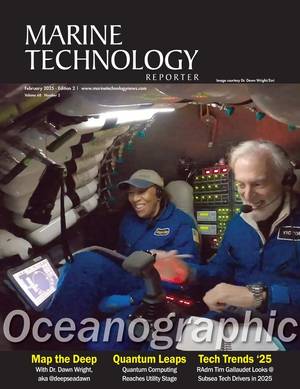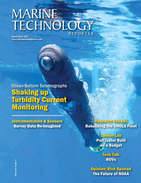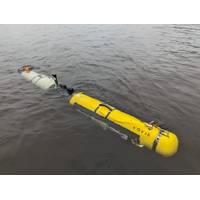
Tech Partners Enhance NATO Navy’s AUV Capabilities
A collaboration between tech partners L3Harris, Voyis and Wavefront is enhancing NATO Navy’s autonomous underwater vehicles (AUV) capabilities.L3Harris’ area of expertise is the development of AUVs for a variety of maritime applications. To further improve L3Harris’ Iver4 900 AUV capabilities, the global defense company integrated a Voyis Recon LS and the Wavefront Solstice 3000 multiple-aperture sonar (MAS) Combined AUV payload onto the Iver4 900 platform to support defense missions. The Voyis team, in collaboration with Wavefront Systems, announced a successful factory
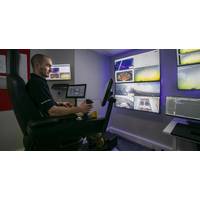
Researchers Study Offshore Control Systems for Remote Ops
;s remote operations centers this standardized interface will ensure consistency and promote safe and efficient operations, the company said.OICL professor Kjetil Nordby said, "The collaboration with Fugro has allowed us to accelerate the expansion of the OpenBridge platform to new maritime applications. In addition, we have a strategy of supporting all ocean industries workplaces at sea and on land, and direct collaboration with industry leaders such as Fugro helps us accelerate OpenBridge growth.”Peter Looijen, Fugro’s director of innovation in Europe, said, “As Fugro
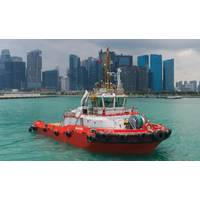
Maju 510 Tug: Singapore's First Autonomous Vessel Project Complete
, the remote control feature leverages the ultra-low latency 4.5G network connectivity of M1, another member of the Keppel Group, to establish standards and data transfer links in terms of latency and reliability for the ship to shore communication, and support mission-critical Internet-of-Things maritime applications.Furthermore, the vessel is the first vessel to receive the Smart (Autonomous) Notation under the Singapore Registry of Ships (SRS) by the Maritime and Port Authority of Singapore (MPA). This certifies the tug’s ability to perform autonomous and remote control navigation in a controlled
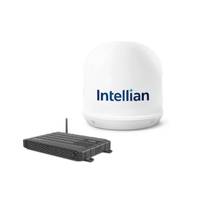
Intellian, Inmarsat Launch New FleetBroadband Terminals
, which will support existing and future terrestrial networks such as 3G/LTE/5G and more.Ideally suited to take advantage of and deliver optimal results from Inmarsat’s springboard for innovation, the ELERA L-band network, the FB250 represents a robust choice for a range of data critical maritime applications, including IoT, smart shipping, ocean monitoring and green energy initiatives.FleetBroadband, together with the Global Xpress (GX) service, makes up Inmarsat’s maritime solution FX, combining the reliability and resiliency of L-band with the speeds of Ka-band. The new FB250 has been
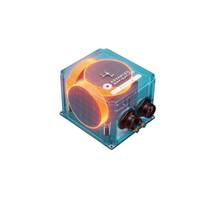
Boreas D90: Digital Fiber-Optic Gyroscope (DFOG) Technology
now use gyro compassing and highly accurate INSs within their range.”“The biggest opportunities we would see are in the U.S. and Europe at the moment,” said Orr. “We're seeing a huge amount of interest in autonomous systems, a huge demand for INS systems for subsea and maritime applications.&rdquo
TMS to Use 3D Printers for Submarines
assembled. For example, by using a 3D printer to make the hydraulic block for a submarine, 83 percent of the weight was saved – from 14 down to 2.1 kilograms.In summer 2019, the thyssenkrupp TechCenter Additive Manufacturing was the world's first producer of 3D printed components for maritime applications to receive manufacturer approval from the renowned classification society DNV GL. The certificate guarantees the material properties of the finished component in accordance with specified standards issued by independent testing bodies.In future, thyssenkrupp Marine Systems plans to use 3D
Thyssenkrupp Wins 3D Printing Approval
impacts. Certification ensures that AM part users can have the same confidence in an additive manufactured product as a conventionally produced one.The newly issued certificate makes the thyssenkrupp TechCenter Additive Manufacturing the world’s first producer of 3D printed parts for maritime applications to obtain manufacturer approval from DNV GL. This means that thyssenkrupp TechCenter Additive Manufacturing is an DNV GL approved supplier for maritime and general industrial applications. Certification was important for thyssenkrupp Marine Systems as the company is working closely with internatio

Executive Team Changes at iXblue
space and then maritime activities, he has been the head of the navigation department since 2017.For Fabien Napolitano, "it has always been in iXblue’s DNA to provide customers with new solutions, enabling them to go a step further and make their dreams become reality. In the fields of maritime applications, photonics and technologies related to autonomy, we believe that iXblue can help customers to meet their challenges and push the limits of what is possible. Thomas’ talents and expertise combined with his in-depth knowledge of the company and our markets are great assets which will
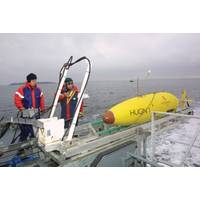
Unmanned Vehicles: 25 Years of Milestones
employ AUVs for many different types of mission from site characterization & inspection to pipeline inspection. Marine hydrography and 3D pseudo-seismic as well as archaeological studies are also common commercial applications. Today the survey AUV is not just accepted, but expected, in many maritime applications.With survey AUVs becoming commonplace the emerging frontier for AUVs includes novel concepts enabled by modern electronics, design, and manufacturing techniques. In QinetiQ North America’s SEAScout we see a compact, simple approach. Teleynde’s Gavia offers modularity for payload
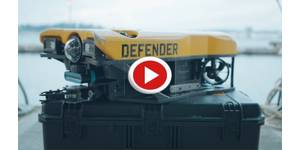
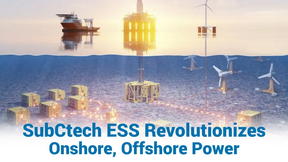
 February 2025
February 2025
